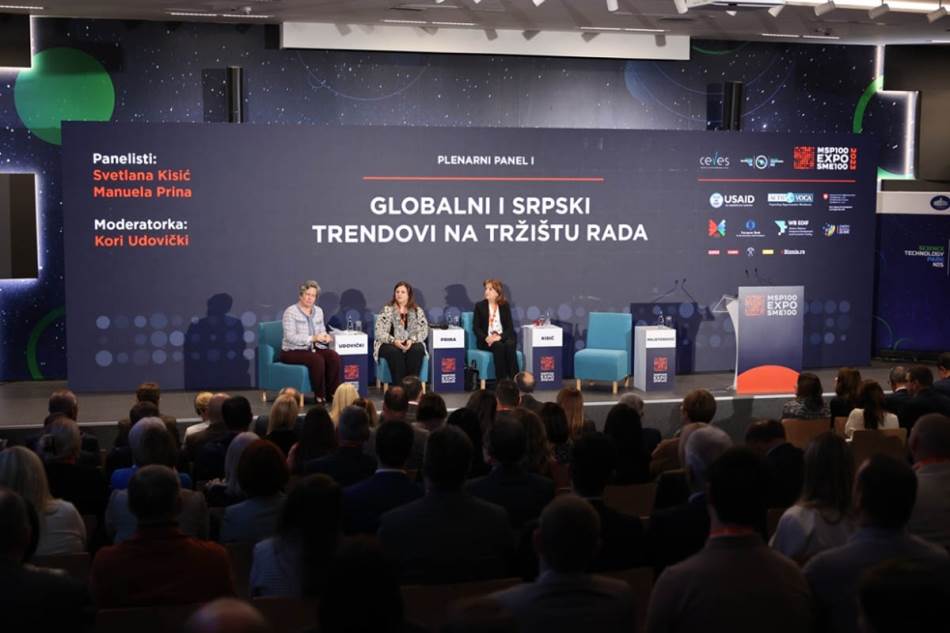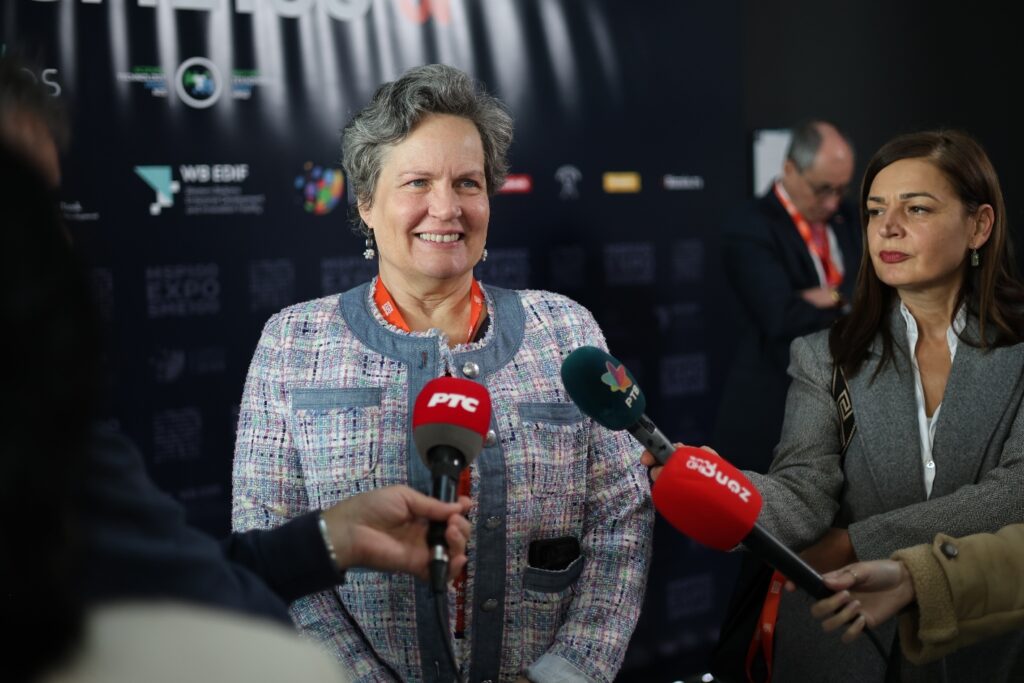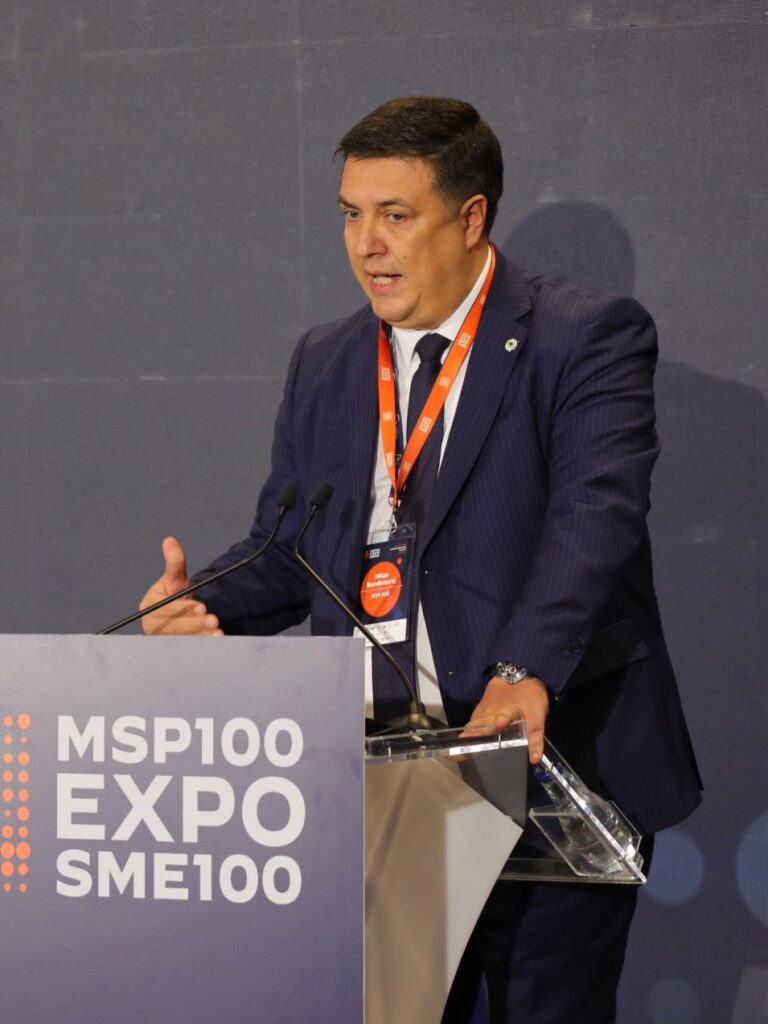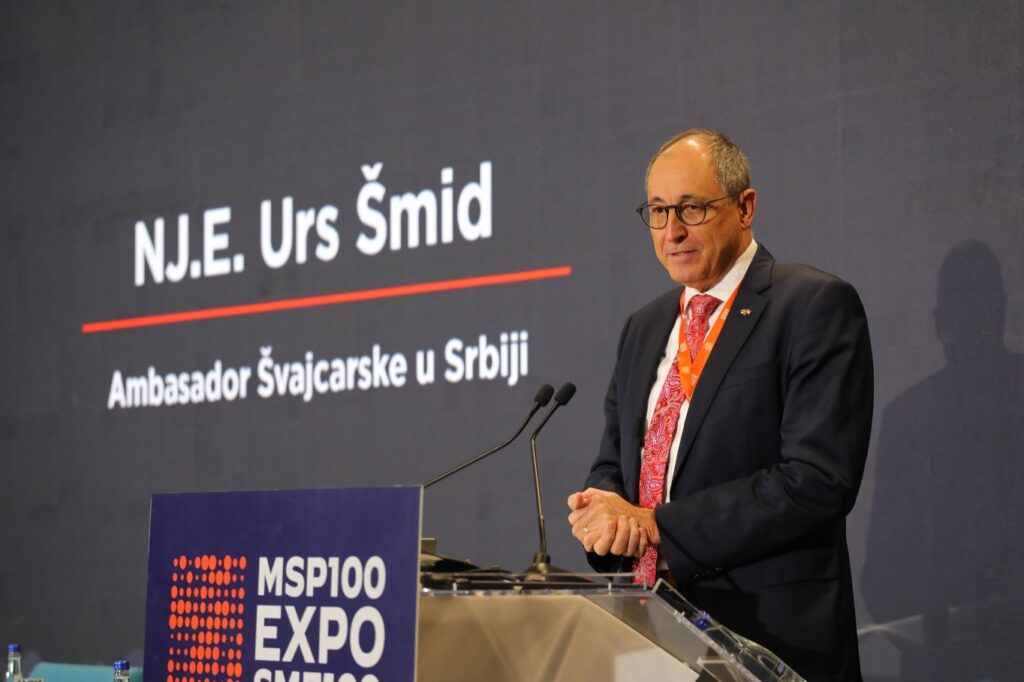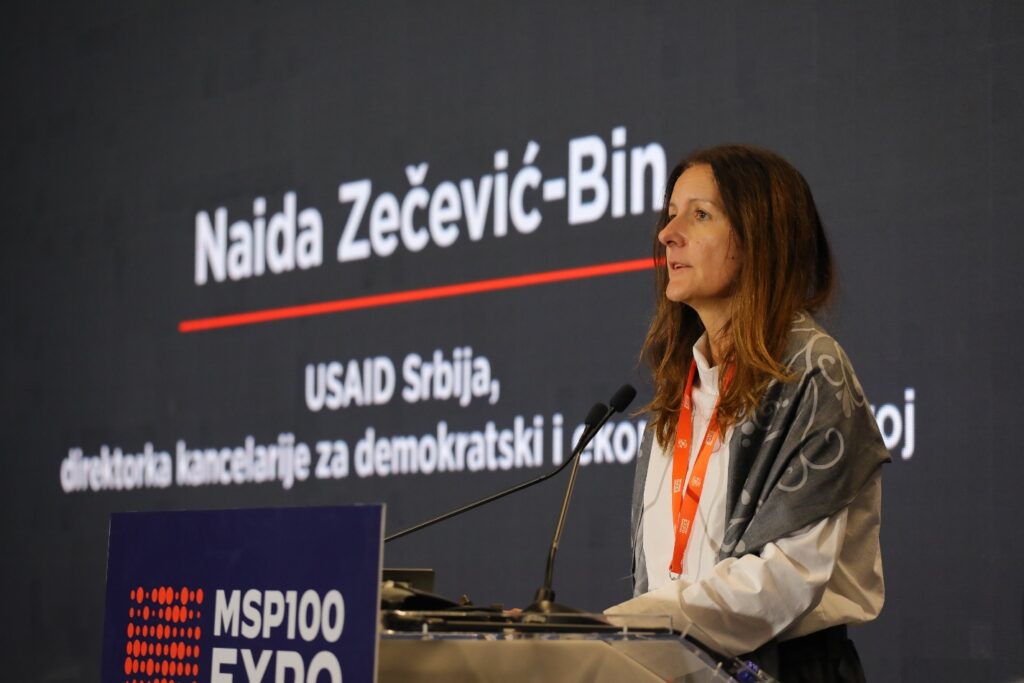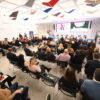The Serbian SME sector has produced numerous champions – export-oriented, innovative, and competitive companies with the potential to grow even faster and contribute to the sustainable development of Serbia in the next decade. By improving the business environment, it is possible to open doors to new emerging champions. In contrast to 10 years ago when unemployment was the focus, companies today identify finding and retaining an adequate number of qualified people as their number one challenge. In order to support the further strong development of the SME sector, address the challenges it faces, and propose appropriate institutional solutions, the Center for Advanced Economic Studies (CEVES) has launched the SME100 Expo initiative. As part of this initiative, the SME100 Expo: People are Success conference was held at the Scientific-Technological Park in Niš.
The Chair of the Board and Chief Economist of CEVES, Kori Udovički, emphasized that today’s SME100 EXPO conference is dedicated to the most successful domestic small and medium-sized enterprises. The event also includes an exhibition, showcasing these champions that deserve recognition. “They are champions, and our goal is to demonstrate that small and medium-sized enterprises in Serbia are not only the backbone and heart of the economy but also a breeding ground for companies that can become champions, grow, represent us globally, and drive development forward. However, for them to achieve all of this, and for Serbia to benefit, a dialogue with the government is essential – to understand their needs,” said Udovički. She added that they do not need assistance, as they have reached where they are without it, but collaboration is necessary, especially during times of crisis. It is crucial that the policies aimed at Serbia’s development create the environment they need.
At the opening of the conference, Milan Ranđelović, the Director of the Scientific-Technological Park Niš, stated that three pillars are simultaneously developing in the Serbian economy: successful foreign investors, domestic companies that have been established, grown, and developed in Serbia, and an innovative start-up ecosystem that is thriving. “I believe that there is insufficient effort put into synergy and the collective growth of these three sectors. However, this problem actually represents an opportunity to accelerate economic development further through better collaboration among them,” said Ranđelović
The Ambassador of Switzerland to Serbia, H.E. Urs Schmid, emphasized that small and medium-sized enterprises, which employ 99 percent of the workforce, form the backbone of the economy. “Today, more than ever, it is a challenge to retain talented and motivated people, a problem faced by both small and medium-sized enterprises. Switzerland in Serbia has several projects dedicated to promoting human capital development. Through the Knowledge to Work project (Education to Employment/E2E), we are developing the talents of young people and supporting their education for the job market. Through the SME Hub project, small and medium-sized enterprises receive support in modernization and transformation necessary for integration into global supply chains, especially in meeting the standards and requirements of foreign markets,” said the Swiss Ambassador.
Naida Zečević Bin, the Director of the Office of Democratic and Economic Development at USAID Serbia, stated that USAID proudly supports small and medium-sized enterprises in Serbia as they are the driving force behind innovation and a key element in accelerating economic growth. “Despite facing numerous business challenges, some of these companies that are our partners are very successful in connecting Serbia with the world, introducing innovation into their operations, and placing their products in markets worldwide. Through our project ‘Velika mala privreda’ and in collaboration with CEVES, we have created the SME Compass tool designed to measure the competitiveness of small and medium-sized enterprises. We believe that progress in business can also be achieved through the use and analysis of high-quality data. Therefore, we hope that all interested companies, as well as media, civil society organizations, representatives of institutions, and other donors and projects, will use this exceptional tool,” conveyed Zečević Bin.
At the event, the SME Compass was introduced, a free interactive portal providing a detailed insight into the competitiveness of the sector and the factors influencing it. Based on specific analyses and open data, everyone involved in activities focused on the development of SMEs, including development agencies, government institutions, donors, media, and businesses themselves, will be able to more effectively create development strategies and support programs. Companies can now assess their competitive position in over 30 aspects (profitability, productivity, earnings, indebtedness, level of digitization, workforce qualification, etc.). All users can search through over 20,000 companies and identify those that match their key business criteria.
As part of the conference, an exhibition titled “Development and Achievements of SME100 Champions” was showcased, featuring companies from the SME100 list—carefully selected based on criteria such as revenue, exports to sophisticated markets, impact on the local community, fair business practices, innovation, etc.
This year’s SME100 Expo also included a free training session on green transition prepared and conducted by the EBRD. The one-day training, ” Fundamentals of ESG for SMEs” (ESG Basics for SMEs), was designed to enhance the knowledge of SMEs in Serbia about Environmental, Social, and Governance (ESG) principles and encourage timely positioning of firms in the local and international markets. The training focused particularly on environmental protection issues that already impact their operations. Throughout the one-day course, successful domestic small and medium-sized enterprises had the opportunity to familiarize themselves with the ESG concept, regulations and standards, upcoming obligations related to non-financial reporting, and gain insights into best practices for investing in ESG and integrating sustainability principles into their business strategies.
The organizers of the SME100 Expo are CEVES and the Scientific-Technological Park in Niš, with partners including the project “Velika mala privreda” funded by USAID and implemented by ACDI/VOCA, the European Bank for Reconstruction and Development, as well as the “From Education to Employment” project (E2E/Znanjem do Posla), supported by the Swiss Cooperation Office and implemented by NIRAS IP. The conference is supported by the “Sustainable Development for All” platform, backed by the governments of Switzerland and Germany, and implemented by GIZ.


